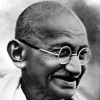“ Not only does the better man think he ought to get more, since more should be assigned to a good man, but the more useful similarly expects this; they say a useless man should not get as much as they should, since it becomes an act of public service and not a friendship if the proceeds of the friendship do not answer to the worth of the benefits conferred. ”
Aristotle, Nicomachean Ethics (c. 334 BC - 330 BC). copy citation
| Author | Aristotle |
|---|---|
| Source | Nicomachean Ethics |
| Topic | friendship worth |
| Date | c. 334 BC - 330 BC |
| Language | English |
| Reference | |
| Note | Translated by W. D. Ross |
| Weblink | http://classics.mit.edu/Aristotle/nicomachaen.mb.txt |
Context
“for in purpose lies the essential element of virtue and character.
14
Differences arise also in friendships based on superiority; for each expects to get more out of them, but when this happens the friendship is dissolved. Not only does the better man think he ought to get more, since more should be assigned to a good man, but the more useful similarly expects this; they say a useless man should not get as much as they should, since it becomes an act of public service and not a friendship if the proceeds of the friendship do not answer to the worth of the benefits conferred. For they think that, as in a commercial partnership those who put more in get more out, so it should be in friendship. But the man who is in a state of need and inferiority makes the opposite claim;”
source


